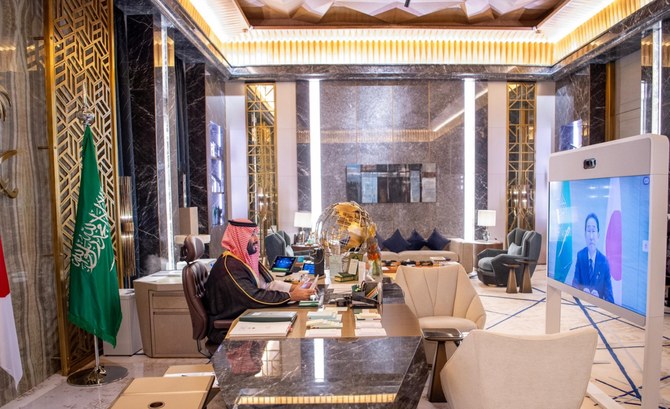
- ARAB NEWS
- 18 Jul 2025

Geographically, Saudi Arabia and Japan could not be much farther apart, but the past few days have shown just how close the two countries have become politically, economically and strategically.
It is true that the eleventh hour cancellation of Crown Prince Mohammed bin Salman’s presence in a delegation to Japan this week — due to the health condition of King Salman, who was admitted to hospital for checks just hours before the trip was due to begin — subdued what was meant to be a grandiose presence on the Saudi side. However, the indication from Riyadh was very clear: the show must go on.
There was still a delegation of heavyweight ministers on the flight to Tokyo, including Prince Abdulaziz bin Salman (the crown prince’s brother and the world’s most influential energy minister); Prince Badr bin Farhan, the minister of culture; Minister of Communications and Information Technology Abdullah Al-Swaha; and last but certainly not least, Khalid Al-Falih, the veteran minister of investment, former head of Saudi Aramco and the very capable man entrusted with coordinating the Kingdom’s strategic relationship with Japan.
Furthermore, a video call was conducted between the crown prince and Japanese Prime Minister Fumio Kishida to ensure this message was well received in Tokyo: Japan is an important country, we understand your needs and we see eye to eye on many points.
Perhaps the strongest message from the crown prince was restressing the Saudi commitment to providing a stable supply of crude oil to Japan, which is known for being a net importer of energy, with about 45 percent of its oil coming from the Kingdom.
However, the last few days also signaled many other important indicators, including that Saudi Arabia intends to diversify its energy offerings to Japan to include cleaner options. Both countries agree that this should be done in a practical and scientific way.
But energy is only one of the many aspects in Saudi Arabia and Japan’s multifaceted journey to transform their relationship from a transactional one into a strategic one, as it surely should be. With the two countries preparing to celebrate the 70th anniversary of the establishment of diplomatic relations in 2025, the crown prince and prime minister agreed to establish a Strategic Partnership Council.
During the call, Kishida “expressed his hopes for direct investment from Saudi Arabia into Japan in a wide range of fields, as well as cooperation in the fields of construction, power transmission, utilization of hydrogen, digital, ICT, space, health, medicine, food, agriculture and other sectors, which will lead to creating business opportunities.”
Not many countries share what Saudi Arabia and Japan have. In essence, while the Kingdom’s public and declared policy is regional stability, it is absolutely in Japan’s interest that this is the case, as its lifeline of energy supply depends on it. So, the two countries can closely collaborate on bringing peace and prosperity to the region.
Like us here in the Middle East, Japan also has regional problems, and Saudi Arabia, with its diplomatic and economic clout, can play a role in bringing points of view closer together. We both want to see a reduction in the number of nuclear weapons and weapons of mass destruction, which is also in the global interest.
Both countries are close to the US and seek to ensure the best of relations with Washington in a mutually beneficial way. Meanwhile, Japanese investors have huge potential in Saudi Arabia, and vice versa.
The challenge is to safeguard this vision against political turmoil and changing governments in Japan, but this is exactly why creating multi-stakeholder value is important. In essence, business is secular and arguably apolitical, so a big chunk of responsibility lies with business leaders on both sides ensuring there is enough interdependence so that the shared vision, which is for the benefit of both peoples, goes forward regardless.
The Japanese prime minister stated that he was pleased he will be handing over the torch of the World Expo from Osaka 2025 to Saudi Arabia ahead of Expo 2030 in Riyadh, and that he seeks to further encourage the growth of exchanges, including in the fields of entertainment, tourism, academia and sports.
Meanwhile, the torch of friendship that was lit by Saudi Arabia and Japan almost 70 years ago will burn ever more brightly in the years to come.